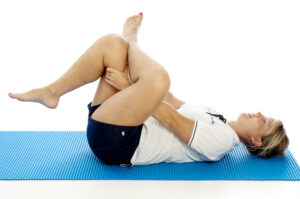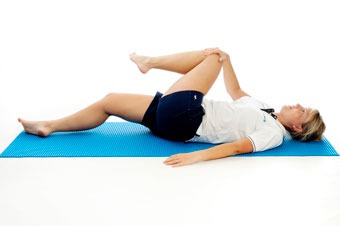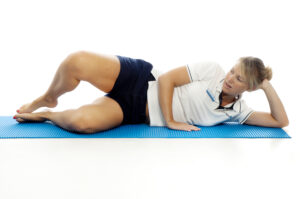Buttock Pain
A lot of runners, cyclists, office workers who have a long commute complain of buttock pain.
So what is causing my buttock pain?
There are many structures which can cause buttock pain. It could be piriformis syndrome/dysfunction, referral from lumbar spine, hip joint, sacro-iliac joint, bursa, sciatic nerve or glute max muscle.
The most common cause of buttock pain we see is piriformis dysfunction.
Here is a testimonial from one of our clients who was suffering from piriformis dysfunction
‘Kate is amazing! I have been coming to see her for ongoing Piriformis Syndrome treatment (combined with seeing Natalie for physiotherapy). I will be ever grateful to both of them for not only determining what I was suffering from but for devising the courses of physio and massage which have proved so very effective for me. I had all but given up hope of getting any relief from the considerable pain and discomfort which this condition causes ……… having had no diagnosis at all from the NHS and who in fact did give up on me in the end. I still have some discomfort from this condition but nothing compared to how it was when I first came to see them. I am so much more optimistic that I will one day be totally pain free now – all due to the determination and care shown to me by both Kate and Natalie, all the while treating me with complete respect and professionalism. Thank you so much for all your help!’
What is Piriformis Syndrome?
Piriformis syndrome is a condition in which the piriformis muscle, located in the buttock region, tightens which then leads to buttock pain. Some people also describe pain, numbness and tingling down the back of their leg and sometimes into their foot. This is because the piriformis muscle can also irritate the nearby sciatic nerve.
Symptoms of Piriformis Syndrome
The most common symptoms are:
- Buttock pain
- Sciatic pain down the back of the thigh, calf and foot
- Increased pain after prolonged sitting
- Pain when walking up stairs or inclines
- Reduced range of movement of the hip
Treatment
Exercises combined with massage and soft tissue release is the best treatment for piriformis syndrome. Acupuncture is also an effective treatment to relax the piriformis muscle too. We offer acupuncture services at both our Havant and Rowlands Castle clinics.
Please be aware of your body and take advice from your GP before exercising or send an email to (enquiries@physio-logical.net) for advice and guidance. All the exercises and stretches should be pain free, please do not push into pain as you may irritate the sciatic nerve and make the pain worse.
Piriformis Stretches
There are two stretches for Piriformis:
Lumbar Spine Rotation
Gluteal Strengthening – Clam
If you are suffering from buttock/sciatic pain or any other aches or pains then please get in contact with us via enquiries@physio-logical.net or 07835 712306.








